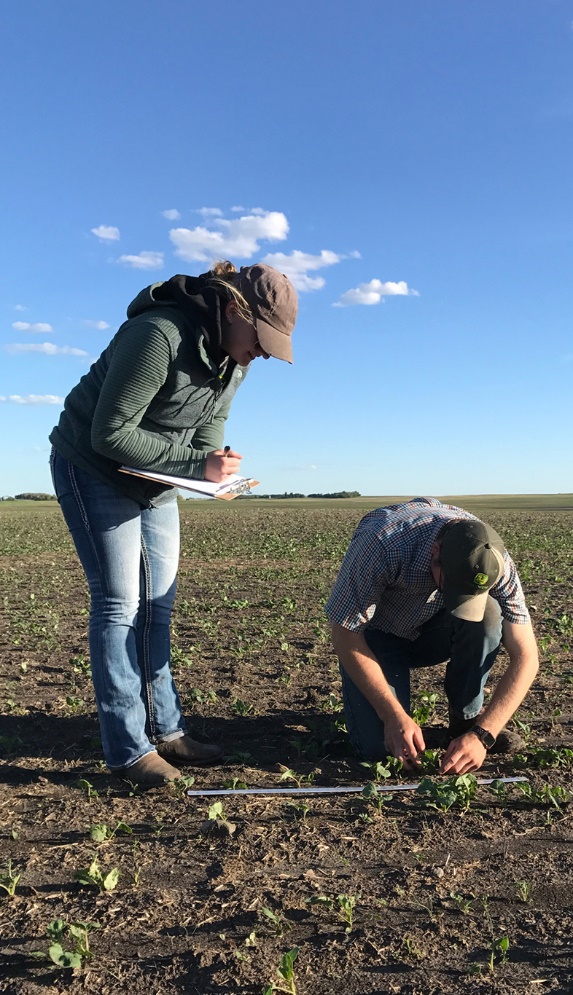Environmental Science & Technology (BSc)
 Both the environment and science/technology have attracted attention in recent years as themes addressing major needs of the industry and the society as a whole. The goal of the undergraduate programme of the Department of Environmental Science and Technology is to educate students in a combination of life and environmental sciences and technology to meet the worldwide needs in this area. The main feature of the program, which is unique in Northern Cyprus, is its educational structure in which the Department’s faculty work together to teach a variety of topics in the field of Environmental Science and Technology. After complementing lectures with practical education, students are assigned to laboratories in diverse fields during their senior year while undertaking research for their degree.
Both the environment and science/technology have attracted attention in recent years as themes addressing major needs of the industry and the society as a whole. The goal of the undergraduate programme of the Department of Environmental Science and Technology is to educate students in a combination of life and environmental sciences and technology to meet the worldwide needs in this area. The main feature of the program, which is unique in Northern Cyprus, is its educational structure in which the Department’s faculty work together to teach a variety of topics in the field of Environmental Science and Technology. After complementing lectures with practical education, students are assigned to laboratories in diverse fields during their senior year while undertaking research for their degree.
Academic integrity
Academic integrity is the pursuit of scholarly activity in an open, honest and responsible manner.
Academic integrity is a basic guiding principle for all academic activity at The Mesarya Technical University, and all members of the University community are expected to act in accordance with this principle.Consistent with this expectation, students should act with personal integrity, respect other students’ dignity, rights and property, and help create and maintain an environment in which all can succeed through the fruits of their efforts.
Academic integrity includes a commitment not to engage in or tolerate acts of falsification, misrepresentation or deception. Such acts of dishonesty violate the fundamental ethical principles of the University community and compromise the worth of work completed by others

A lack of knowledge or understanding of the University’s Academic Integrity policy and the types of actions it prohibits and/or requires does not excuse one from complying with the policy.
Mesarya Technical University and the Faculty of Natural and Agricultural Sciences take violations of academic integrity very seriously.
Faculty, alumni, staff and fellow students expect each student to uphold the University’s standards of academic integrity both inside and outside of the classroom.

Program Language
All theoretical, practical courses and seminars will be presented in English
Scholarship Availability
Four years Student Enrolment Plan and scholarship programme of the faculty is given on Table 1.
|
Academic Establishment |
Academic inauguration |
Student quota |
Student quota |
Student quota |
Student quota |
Total |
| Faculty of Natural & Agricultural Science |
2020-2021 2021-2022 2022-2023 2023-2024
|
50 50 60 60
|
4 4 6 6
|
6 6 8 8
|
10 10 10 10
|
70 70 84 84
|
Table.1 . Four years enrolment and scholarship program of the Faculty of Natural & Africultural Science

MESARYA TECHNICAL UNIVERSITY
FACULTY OF NATURAL AND AGRICULTURAL SCIENCES
Environmental Sciences Technology (Bsc.) Program
Program Profile
|
Qualification Awarded |
Bsc.in Environmental Sciences Technology |
|
Level Of Qualification |
Bachelor |
|
Offered by |
Department of Agricultural Sciences,Biotechnology and Food Sciences |
|
Mode of Study |
Full Time |
The language of instruction English.
……………………………………………………………………………………………………………………………………………
 The program introduces and familiarizes students with a broad range of Environmental Sciences Technology disciplines. In addition, the program is designed to offer students the fundamental Environmental Sciences Technology theories together with practise and develop in them the skills essential for competitiveness in the 21st century. The courses offered through the program constitute a balance between the academic and practical directions. Upon graduations students are prepared for the industry and/or for further studies.
The program introduces and familiarizes students with a broad range of Environmental Sciences Technology disciplines. In addition, the program is designed to offer students the fundamental Environmental Sciences Technology theories together with practise and develop in them the skills essential for competitiveness in the 21st century. The courses offered through the program constitute a balance between the academic and practical directions. Upon graduations students are prepared for the industry and/or for further studies.
Environmental Sciences Technology teaching is, by nature, a hands-on endeavor. This philosophy is embodied in labs, class exercises, practica, internships, and independent research. These diverse delivery methods allow students to apply theory in a practical, real-world setting. This broad preparatory approach is underscored by a comprehensive liberal arts base to prepare graduates for a wide range of career opportunities.
Combine with business management and marketing. At Mesarya Thenical University we take an applied approach. You’ll build your science, business and practical knowledge throughout the course.
You’ll be taught by subject specialists and researchers. This means you’ll gain knowledge of the most rapidly developing areas of Environmental Sciences.
Key Learning Outcomes
Occupational Profiles of the Graduates
Environmental Sciences Technology Bsc. Program
Courses Qualification Requirements
The Program is based on the credit accumulation mode of study. Students can be awarded the Bsc. in Agricultural Sciences, Biotechnology and Food Sciences upon completion of credits. These credits are allocated to compulsory and elective courses as shown in the table below. The list of compulsory and elective courses is provided in the Program’s course structure.
ENVIRONMENTAL SCIENCES TECHNOLOGY COURSE PROGRAM

Students
- Student Book
- Lab Report Format
- Summer Practice Report Format
- Lab Manual
- Summer Practice Procedure
- Summer Practice Form
- What is food science?
Essentially, food science is the art and science of what goes on between the time a food item is produced and the time it ends up on a plate. All of the parameters that go into making food for consumers is important to food science. If it in any way involves something edible, then it is a part of food science.
Food science is a multi-disciplinary field of study that encompasses science, technology, research, production, industry, and safety. It involves chemistry, engineering, biochemistry, microbiology, post-harvest physiology, product research and development, processing, distribution, quality assurance, auditing, management, testing and storage. It involves all types of food products, including dairy, meat, vegetables, fruits, vegetables, breads, chips, pies, dog treats, fast food, and sauces. It involves food processing, like canning, baking and milling, meat production, fruit and vegetable production, and wine-making. It involves ensuring the safety and quality of food, including food security, biosecurity, and quality assurance.
- What does the food science curriculum involve?
In the food science program, we will walk you through a curriculum that will take you all the way from introducing concepts of food science to courses focusing on particular areas of food science. Some courses you will take include the food analysis course where you will analyze different compounds, proteins, and carbohydrates that make up food, the food microbiology course where you learn about microbes that exist in different foods, and food chemistry where you will learn what goes into making different foods functional. All of these components will be included in your food science curriculum no matter what option you choose within the food science degree.
Food science is a broad field of study. Within each option of the food science degree program, you can decide to focus in a particular area. Do you want to work in bakery and milling? Meats? Canned foods? Research? Academia? Product development? We’ve got you covered! View our course list for more information.
- What job opportunities are available?
There are many opportunities for our students to work in the food industry. They really can have their choice because there are many jobs and opportunities for them out in the industry. Our graduates are working across the U.S. in everything from ingredients and formulas to chips to meat to dairy products. Some of the careers you can pursue with a food science degree include:
- Certified flavor chemist
- Food analytical director
- Food ingredients sales
- Food microbiologist
- Food safety regulator
- Food technologist
- Market researcher
- Meat marketing specialist
- Nutritionist
- Plant operation manager
- Product development specialist
- Product salesperson
- Sensory scientist
- Quality assurance supervisor
- Are there opportunities to get hands-on experience?
Yes! Mesarya Technical University is home to the Food and Agricultural Products Center (). Students in our food science program get access to this premiere facility through classes, research, and internships. Along with laboratory space, FAPC has pilot-processing facilities and a wide-range of equipment for doing many different types of processing, like meat processing, milling and baking, cooking, canning, freezing, and drying. Students have the opportunity to get hands-on experience with the equipment at FAPC.
As part of our food science program, all of our undergraduate students get internships. There are a many opportunities for internships in food science; not only in the state but all over the country. There are numerous jobs in food science and a high demand from the industry for food science students.
- Can transfer students be involved in the food science program?
Absolutely! We see more and more transfer students coming into food science. It doesn’t matter what program you are coming from. If you are transferring to food science after starting a degree program in another university, college, or department, we will work with you to best match the courses you’ve taken with the food science degree program! We want to get you started down the right track when entering our food science classes and curriculum.
